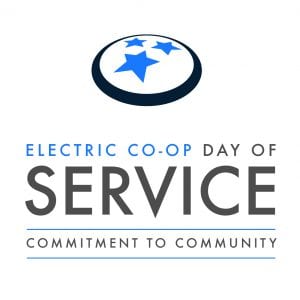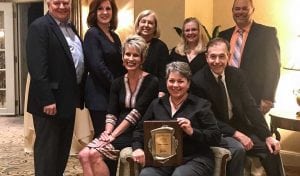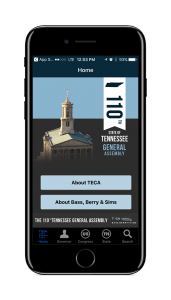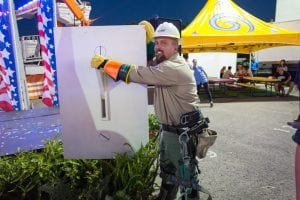 [NASHVILLE] – Co-ops across the state today are participating in the first Tennessee Electric Co-op Day of Service. More than 300 co-op employees are scheduled to volunteer 1,200 hours in completing 19 unique service projects in co-op served communities throughout Tennessee.
[NASHVILLE] – Co-ops across the state today are participating in the first Tennessee Electric Co-op Day of Service. More than 300 co-op employees are scheduled to volunteer 1,200 hours in completing 19 unique service projects in co-op served communities throughout Tennessee.
“We build stronger communities – it’s the reason we exist,” said David Callis, executive vice president and general manager of the Tennessee Electric Cooperative Association. “The Day of Service is an opportunity for co-ops use our time, skills and expertise to create a positive impact on the places we serve – the places we call home.”
Twelve Tennessee co-ops developed 19 individual projects as a part of the 2017 Tennessee Electric Co-op Day of Service. This year’s effort included partnerships with Second Harvest Food Bank, Habitat for Humanity, Boys and Girls Clubs and United Way as well as projects to install LED nightlights at a nursing home, conduct litter pickups, install new ductwork for deserving members and construct wheelchair ramps. A majority of these projects will be completed on Thursday, Oct. 5, but conflicts required that some projects be scheduled for other days.
Participating in this year’s event are employees from Appalachian Electric Cooperative, Cumberland Electric Membership Corporation, Duck River Electric Membership Corporation, Gibson Electric Membership Corporation, Meriwether Lewis Electric Cooperative, Middle Tennessee Electric Membership Corporation, Pickwick Electric Cooperative, Plateau Electric Cooperative, Sequachee Valley Electric Cooperative and Volunteer Energy Cooperative. We are also grateful for AdPro for providing shirts for this year’s volunteers.
“We appreciate the co-ops that are a part of our first Tennessee Electric Co-op Day of Service,” says Callis. “We look forward to having an even bigger impact next year.”
View photos of the event here.


 “We have produced print directories of the General Assembly for more decades, and this is our fifth year to release an app,” says David Callis, executive vice president and general manager of the Tennessee Electric Cooperative Association. “It is important for Tennesseans to be active and involved with their elected officials, and the app is a tool that makes it easy to speak up on issues that are important.”
“We have produced print directories of the General Assembly for more decades, and this is our fifth year to release an app,” says David Callis, executive vice president and general manager of the Tennessee Electric Cooperative Association. “It is important for Tennesseans to be active and involved with their elected officials, and the app is a tool that makes it easy to speak up on issues that are important.”

